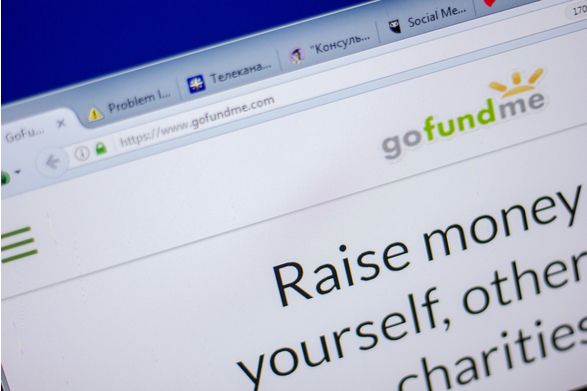For the 10th year in a row America has been named the most generous country in the world. That is the conclusion of a new report of the Charities Aid Foundation, which ranks 128 countries according to how many citizens volunteer, help a stranger in need and donate money to a philanthropic cause. In the past year, almost three quarters of Americans helped a stranger, more than half donated money, and 42% gave their time. Charitable giving and voluntary aid have been features of American life since at least the 1830s when Alexis de Tocqueville called attention to them in Democracy in America.
But American generosity, rather than a reason for celebration, is viewed these days by many observers with deep suspicion. Many in the popular media are determined to show that the American system of voluntary giving is fundamentally unfair and helps to perpetuate what they call “systemic inequality.”
Going after GoFundMe
Consider, for example, some recent coverage of GoFundMe, the website that allows people to crowdsource funding for a cause, usually to help an individual or family or community in distress. An article in the November issue of The Atlantic notes that the website’s “call-and-response between the have-nots and haves poignantly testifies to the holes in our safety net — and to the ways people have jerry-rigged community to fill them.” Many will think that this is a good thing: people from different walks of life coming together to help others in need. In the author’s view, however, “sentimental stories of uplift can hide underlying structural problems.”
Earlier this year, the New Yorker ran a similar article criticizing GoFundMe for helping people to pay for their medical bills. What’s wrong with that? The author claims that paying for medical aid on the basis of sympathetic stories circulated through the media blocks reform of the health care system as a whole. As the author writes, “the guy with resources helps an ailing friend, or donates to a stranger whose experiences resonate, and believes that he’s done his part. Meanwhile, the causes of problems go untouched.” Better, he suggests, to let the individual suffer so that his case can be used to drum up support for government-controlled health care.
In the Guardian, columnist Alissa Quart goes after the GoFundMe campaigns that have paid off students’ school lunch debt. She claims that these meals should be provided for free, paid for by the government via the tax system. One reason they are not, she suggests, is that others come forward in their private capacity to provide aid, either directly or through vehicles like GoFundMe. She writes: “Our social fabric is sundered. … crowdfunding sites … are an example of what has sprung up in its place, what I have called America’s dystopian social net. That is, we now require private solutions to what are public problems.”
Of course, Americans have always offered private solutions to public problems. We’re very good at it. And there are plenty of reasons to prefer private solutions. The government is not very good at solving every problem that arises with individuals or communities. Why are bureaucratic approaches superior to spontaneous campaigns organized by individuals through GoFundMe? Unfortunately, there is a growing sense that any kind of private effort to help is a sign that the government has fallen down on the job, or even that such efforts have allowed the government to shirk its duties.
Celebrate giving, don't shut it down
And, frankly, there are signs that the government doesn’t appreciate the help either. Just take the recent crackdown on DonorsChoose, a website that allows teachers to post items they would like to add to their classroom and donors to decide to fulfill those wishes. According to a recent article in Education Week, a number of districts including Nashville have banned teachers from using the site, saying that district administrators can’t closely monitor what the teachers are requesting, how money is flowing to different schools and whether the supplies are compliant with various district regulations.
It is true that crowdfunding websites have downsides. They do ask people to engage in a sometimes humiliating tell-all, offering up the most intimate details of their health and family struggles in order to tug at the heartstrings of strangers scrolling through. Critics of the sites rightly note that it is the breakdown of our civic life that has left people asking strangers for help rather than their neighbors and friends. But the answer to this is not to put even more distance between the givers and receivers of help by making government the middle man.
These new websites can help to keep people aware of the challenges that people around them are facing, particularly if they are locally or community based. They can empower even small donors to make a difference in their communities by helping others in need. It is misguided to think that simply by paying our taxes and expecting the government to solve every problem will repair the fraying connections among Americans — indeed, that approach will fray those bonds of connection even further.


